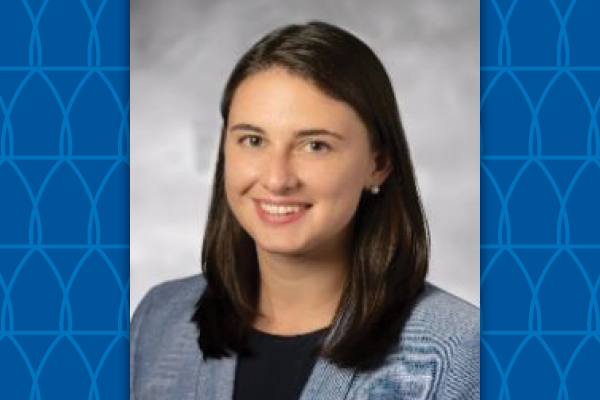Karley Whelan

Karley Whelan is a 3rd year medical student enrolled in the Master of Management in Clinical Informatics program. She is originally from Pennsylvania and has an undergraduate degree from Duke University. She is currently researching endometrial cancer and plans to become an OB/GYN.
Why did you apply to MMCi?
I'd always planned on going to medical school, and I studied sociology and global health in undergrad to take a more interdisciplinary angle than the traditional biochemistry pathway. I became interested in the social determinants of health, the business of healthcare, and how the systems change the kind of care people get and the kinds of outcomes they have. I also took a gap year, and I worked in health policy in Washington, D.C. I was excited when I found out about MMCi’s curriculum in my first year of medical school because it has both a more traditional business and leadership curriculum and a focus on data science and clinical innovation. The timeline really worked out for me because we [3rd year medical students] have this one year to pursue different things, and I wanted to get the most out of that year. I wanted as many perspectives as possible to try to understand where and why the health care system is failing.
What did you enjoy most about this program?
It challenges me to think differently and more creatively than I have thus far in medical school. You might not necessarily leave class with the answers to big interdisciplinary problems, but you are learning how to understand what people are trying to say within their own discipline and how that relates to your discipline. My favorite part is the thought exercise of envisioning myself in so many roles across the hospital or even the entire healthcare industry and trying to better understand their unique problems and successes.
What has been your favorite class?
I loved Principles of Strategy. It was very case-based learning and discussion. It was one of those classes where the professor cold calls people, which kept me on my toes and very engaged. My ability to succeed in that class was based on how creative I could be on the fly and how convincing I could make my comment. It was fun and different from what I’ve been doing for the past years, so I appreciated that opportunity. One of my favorite things from these case studies was seeing how the entrepreneurs and businesses have navigated entering new markets or changing industry practice in the past and why that worked for them or why it didn't.
What is something the program does well?
Right now, we’re taking a data science class. I recently had to take the natural logarithm of the odds of probability of survival of a patient. I have not thought about these kinds of equations in years, and when I did them the first time, I couldn’t see how I would be using them or at least interpreting them after college calculus. But now after this class, I see how a foundational understanding of even a tiny bit of the math behind machine learning helps you be a more conscious consumer of the outputs from these incredible technologies. It makes you think about all the different disciplines that come into play every day in a hospital or doctor’s office. That’s what I like about medicine too. It’s such a great challenge to be a serious scientist researching and practicing evidence-based medicine and simultaneously a compassionate caregiver to the patients you get to know.
What is challenging about the program model?
The hardest thing about the program is that sometimes courses from all these different disciplines can seem very separate, and it’s up to the student to figure out how they’re related. Sometimes you go from a class that’s more in the clinical wheelhouse, and then suddenly, you’re doing capital budgeting. But having that diversity each day, does challenge you to think about everything in in terms of the big picture. You have to think about how these classes and the skills they are teaching you fit together, and how they are all relevant to health systems and healthcare.
What advice do you have for incoming students?
Know what you want to get out of the program. At times, all the different courses and the remote learning classes can feel isolating, but the best part of the program is unifying the different concepts, or appreciating when they are at odds and the complexity of a multidisciplinary approach.